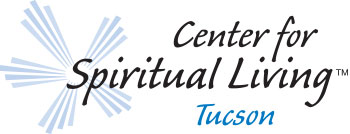Remembering to Be Love
When I started ruminating about this article, I knew I wanted to follow our Theme for the Month of February: Love.
In doing our community prayer, Rev. Janis will often remind us that we swim in the Cosmic Soup of Divine Love. We access all of the Love that we can by our knowing the Truth of who and where we are. Sometimes we make a conscious decision to tap into this power; other times we tap into it on a subconscious level. Other times it filters into us by osmosis. In whatever manner we choose to access it, it always says, “Yes” to us.
I think of my own life as a continuing series of love events as I swim within the Big Ocean of Love. Some of them are fabulous, some of them are so-so, and a few, now and then, are downright hideous.
When I was younger, I could get very angry because someone had done something to me. Or I could get very insecure because I thought I was not enough and deserved whatever negative stuff was showing up for me. I had not yet learned that most of the “stuff” was a product of my own thinking.
As I grew older, I changed my mind about what might be happening to me. When anyone in my life showed up as someone I labeled as mean, snarky, rude, thoughtless, or insincere, I would climb up on my horse of Self Righteousness and ride by them with my Sword of Better-Than-Youness (new word). When I climbed down from my saddle of Superiority, I could see the truth of who they truly were: a perfect person, ACTING in an unloving way. What a relief to realize that “Being” and “Acting” are not the same. I can always love you, even while I am not happy with the way you are acting. Wow.
Many decades ago, I was standing in an early-morning line at the airport in Hilo, Hawaii. Standing behind me was a young mother whose whining, crying toddler was tugging on her skirt, demanding to be picked up and soothed. An older, much wiser, friend of mind looked down at the crying child and said, “He is exhausted. When children act the worst is when they need the most.” WHAM. That one sentence, delivered so casually, became one of the best life lessons I ever learned. Not only children, but all of us, do not act our best when we are tired, scared, or worried.
When I see someone acting in their not-so-best manner, and I am in my Right Mind (The Divine shows up as me, too), I ask myself what they might need. Then I can love them unconditionally, even if I do not always love their actions or attitudes. I don’t know about you, but there are times that I am afraid if I give up my own need to be right, I might “lose” — lose face, lose position, or lose respect. After a round of self-talk, I come into the knowledge that I do not always act in perfect way (GASP!) And that is very ok, too.
But I am Perfect, because I was designed so. I am almost always able to swim in my Attitude of Gratitude for the loving world in which I find myself. I remember and bless my own experience and expression of the Spirit of Love.
— Pat Masters




